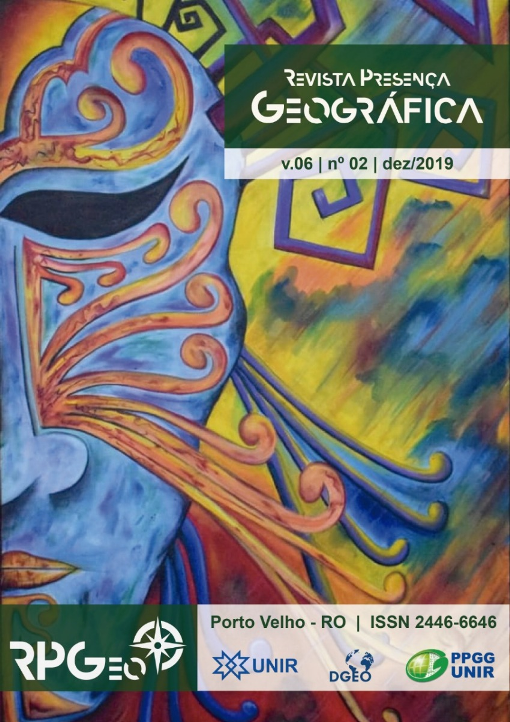USO DE HISTÓRIAS EM QUADRINHOS PARA O ENSINO DE GEOGRAFIA: ANÁLISE DE PROPOSTAS DIDÁTICAS
DOI:
https://doi.org/10.36026/rpgeo.v6i2.4013Palavras-chave:
História em quadrinho, Geografia, Propostas didáticasResumo
A partir de uma revisão de literatura, este artigo teve como objetivo identificar nas propostas didáticas quais foram as categorias de aprendizagem utilizadas a partir do uso da história em quadrinho para o ensino de geografia e suas contribuições para a construção do conhecimento do estudante. A seleção das propostas foi feita a partir da leitura dos títulos, resumos, metodologia e conclusões a fim de selecionarmos os trabalhos que realmente contribuíssem para a pesquisa. Foram classificados quatro artigos e uma dissertação. O processo de análise ocorreu a partir da leitura minuciosa das propostas e os critérios de análise foram definidos a partir da pesquisa de Toppel, Camargo e Chicóra (2015). Os resultados apontaram que as categorias de aprendizagem foram variadas, sendo: duas obras com caráter expressivo, duas expressivo e construtivista, e uma norteadora. Quase todas trouxeram o enfoque crítico e de aprendizagem significativa. Conclui-se que no ensino de geografia, as HQs implicam resultados positivos no processo de aprendizagem, pois são recursos essenciais à medida que abordam os conteúdos, por vezes de difícil compreensão, e os articulam com as imagens, permitindo a expressão da comunicação artística bem como da relação teórica com as experiências do estudante, adquirindo assim em sua ecologia conceitual novas concepções pelo processo de assimilação.
Publicado
Edição
Seção
Licença
Este obra está licenciado com uma Licença Creative Commons Atribuição-NãoComercial-SemDerivações 4.0 Internacional.
Autores que publicam nesta revista concordam com os seguintes termos:
- Autores mantém os direitos autorais e concedem à revista o direito de primeira publicação, com o trabalho simultaneamente licenciado sob a Creative Commons Atribuição-NãoComercial-SemDerivações 4.0 Internacional que permite o compartilhamento do trabalho com reconhecimento da autoria e publicação inicial nesta revista.
- Autores têm autorização para assumir contratos adicionais separadamente, para distribuição não-exclusiva da versão do trabalho publicada nesta revista (ex.: publicar em repositório institucional ou como capítulo de livro), com reconhecimento de autoria e publicação inicial nesta revista.
- Autores têm permissão e são estimulados a publicar e distribuir seu trabalho online (ex.: em repositórios institucionais ou na sua página pessoal) a qualquer ponto antes ou durante o processo editorial, já que isso pode gerar alterações produtivas, bem como aumentar o impacto e a citação do trabalho publicado (Veja O Efeito do Acesso Livre).







